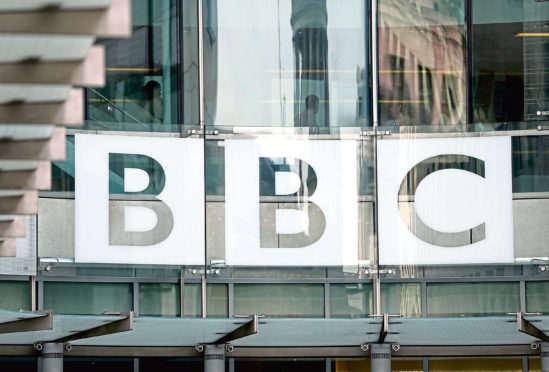I’ve never had much time for the BBC.
My dislike stems from my early days as a newspaper reporter when the corporation’s regional news team in Birmingham would routinely lift stories from our columns, shoot some camera footage and then present them as their own work.
No attribution, no shame and, worst of all, no payment.
What started as little more than mild irritation grew over the years as the BBC became more power hungry, branching out into areas already well served by other broadcasters, but unencumbered by the commercial reality facing their competitors.
Along the way, it has become patronising, narcissistic and totally immersed in its own self-importance.
So forgive me if I view with more than a little scepticism its undertaking to get to the bottom of the latest scandal in which it finds itself embroiled, namely the actions of reporter Martin Bashir in securing the bombshell interview with Princess Diana 25 years ago, in which she lifted the lid in spectacular fashion on the inner secrets of her marriage to Prince Charles.
The corporation has already conceded – and apologised for it – that Bashir used fake bank statements to gain access to the princess but insists a handwritten note from her at the time stated the false statements played no part in her decision to agree to the interview.
Unfortunately – or perhaps fortunately – that note had been lost, and the BBC therefore unable to produce it when reputable journalists began to question Bashir’s actions.
Two attempts to access the note via the Freedom of Information Act were subsequently rejected by the corporation on the grounds that it no longer possessed the information requested.
Princess Diana’s brother, Earl Spencer, claims the fake bank accounts were among 32 examples of misinformation and smears peddled by Bashir to gain Diana’s trust, playing on her insecurity and growing paranoia that some elements within royal circles were plotting against her.
Faced with such growing pressure, the BBC has finally given an undertaking to hold an independent inquiry into the claims, without yet explaining how independent it will actually be, or who will lead it.
The problem it faces, it says, is that Bashir is currently seriously unwell with Covid-19 complications and is too ill to be questioned.
Not too ill to leave his house and go for a takeaway Indian meal, though.
With criticism continuing to mount, the BBC has now disclosed that, wonder of wonders, it has found the missing note from Diana and will make it available to the inquiry.
What is so frustrating about all this is that the BBC simply cannot see that its credibility as a reputable, publicly funded broadcaster has once again been shot to pieces.
It seems to have learnt nothing from previous scandals and continues to go about its daily business in the sincere belief that it is beyond reproach. I’m sorry. That just doesn’t wash.
The warning signs were big and bright when it failed to take decisive action over rumours that its star presenter, Jimmy Savile, was not the genial, cuddly man he was made out to be.
It failed again when a court ruled that its conspiracy with police to conduct, and broadcast live, a raid on the home of Sir Cliff Richard, based on nothing more than rumour and hearsay, was a serious breach of his privacy.
Rather than commit to rooting out the people responsible for such a disgraceful course of action, the corporation simply announced that it stood by its actions, although not to the extent that it would appeal against the court ruling.
Life returned to normal and this out-of-control behemoth carried on regardless.
Even when, despite its protestations, the BBC was forced to reveal the salaries of its highest-paid “talent”, it failed to grasp that compulsory public funding brings with it certain obligations such as transparency and accountability.
It is hardly surprising that it wished to keep its pay structure secret when it gave one of its radio presenters a £1 million-a-year increase – a rise so detached from commercial reality that even the recipient was embarrassed and asked for it to be reduced.
The sad fact is that the BBC will never learn until such time as a new governor is put in place who has as much consideration for the people who pay for the corporation as it does for the people who ride on its gravy train.
I won’t hold my breath waiting for that to happen.
Derek Tucker is a former editor of The Press and Journal

